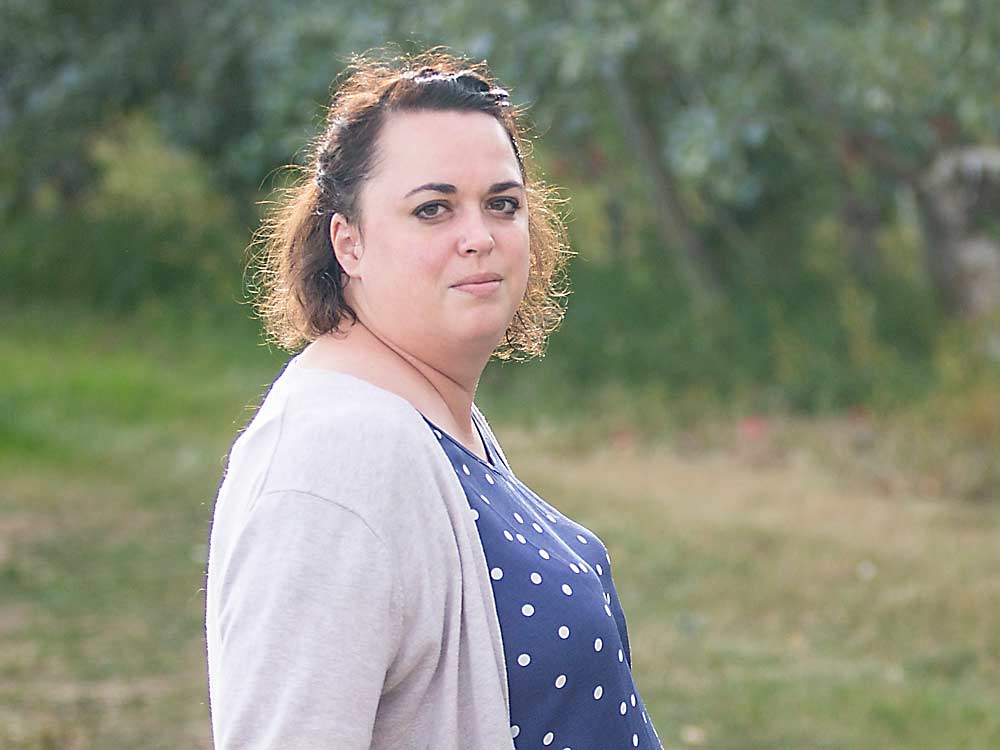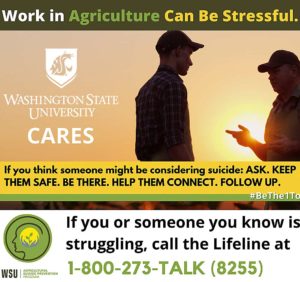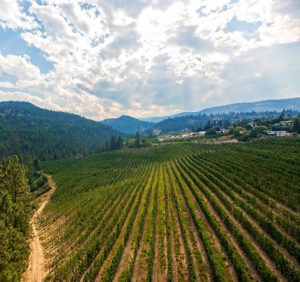
Access to mental health care was one of the motivations behind a new Washington law that mandates insurance providers cover telehealth phone calls at the same rate as video calls. It took effect this year.
Sarah Rasmussen and Brett Monson, two young tree fruit professionals in Washington, lobbied for the law while participating in the AgForestry Leadership Program, which requires state-policy-related projects as part of its curriculum. But the issue is personal for both of them.
Rasmussen, a safety manager for Gilbert Orchards in Yakima, has long struggled with depression so severe she sometimes struggles to get off her couch. The pandemic exacerbated feelings of helplessness at work, where she had always felt confident managing tractor and food safety programs.
“Now I’m adding in this whole new thing that I don’t know anything about …,” she said. “Not knowing the answers for me is a nightmare.”
Rasmussen grew up on an onion, asparagus and pepper farm near Granger. Her perception of the stress her parents faced helped convince her not to take over the family business, which no one pressured her to do.
She remembers her father talking to other farmers, even commiserating about problems, but not in an emotional sense. Today, discussing feelings openly and honestly with others has helped her, even though it’s hard and uncomfortable. She hopes telehealth access lowers at least one barrier for others to do the same.
“I know personally how hard it can be to take that first step,” she said.
Monson, a field representative for Monson Fruit Co. of Selah, has three close friends who have completely left the industry in the past two years. They liked farming but felt overwhelmed by rising costs, ever-scarcer labor and regulations that grow more complicated every year.
“It was just too much,” he said.
He suspects previous generations relied on rural social networks, such as cafes and smudge-night gas station rallies, that don’t exist in today’s computerized age. The answer may lie in a virtual community. “The new digital world, there’s new opportunities to bring people together,” he said.
—by Ross Courtney








Leave A Comment